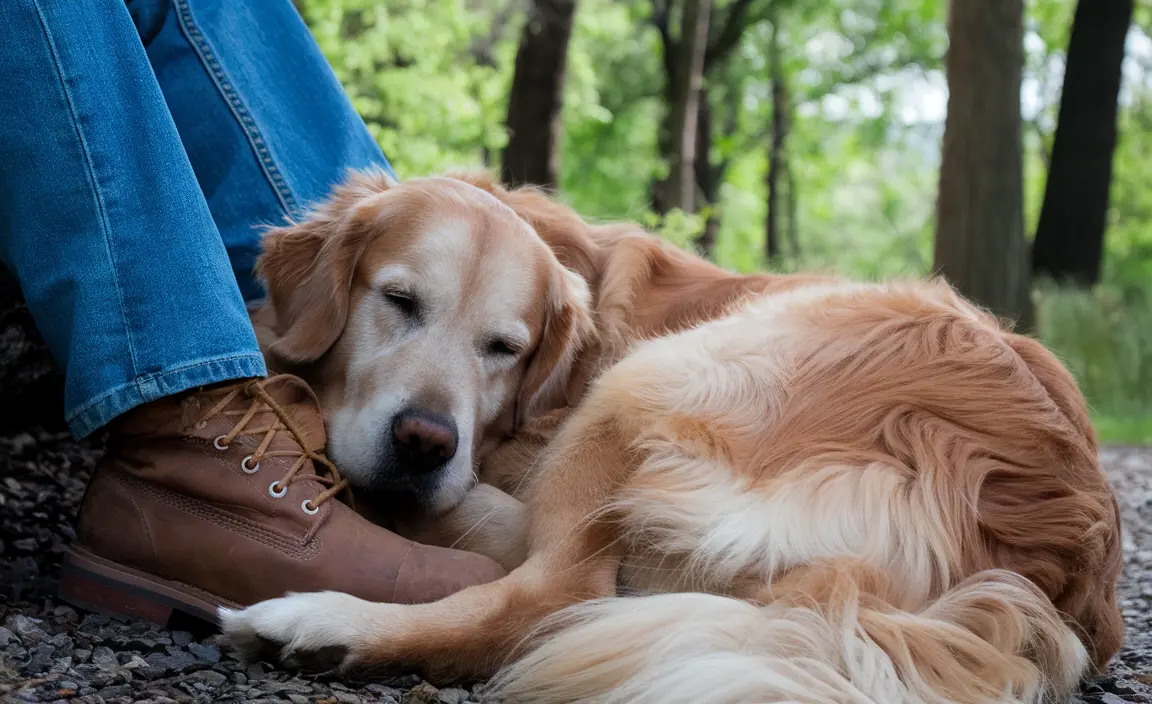Have you ever wondered why your furry companion chooses to curl up at your feet instead of snuggling right next to you? This seemingly peculiar sleeping habit is actually a fascinating insight into your dog's emotional world and instinctual behaviors. Understanding the reasons behind this endearing practice can help strengthen the bond between you and your four-legged friend.
Dogs are complex creatures with deep-rooted social instincts that guide their interactions with their human families. Sleeping at your feet is more than just a random choice – it's a multifaceted expression of love, protection, and trust.
The Pack Mentality: Why Dogs Choose Proximity
Dogs are descendants of pack animals, and their sleeping preferences reflect this ancestral behavior. In the wild, pack members sleep close together for warmth, protection, and social bonding. By choosing to sleep at your feet, your dog is essentially treating you as the pack leader, demonstrating both submission and a deep sense of connection.
Instinctual Protection and Security
When your dog settles at your feet, they're positioning themselves in a protective stance. This location allows them to quickly alert you to any potential dangers while feeling secure in your presence. It's a natural guarding behavior that stems from their wolf ancestors, who would strategically position themselves to protect their pack members during vulnerable moments like sleep.
Emotional Comfort and Psychological Needs
A Sign of Deep Trust and Affection
Choosing to sleep at your feet is an ultimate display of trust. Your dog is essentially saying, "I feel completely safe with you." This behavior indicates that your pet views you as a source of comfort and security. They're close enough to feel your presence but not so close that they might disturb your sleep – a considerate compromise that showcases their emotional intelligence.
Anxiety and Reassurance
Some dogs, particularly those with anxious temperaments, find significant comfort in being near their owners. Sleeping at your feet can be a coping mechanism that provides them with a sense of calm and security. It's especially common in rescue dogs or those who have experienced trauma, who may need extra reassurance of their safety.
Practical Considerations for Dog Owners
Creating Comfortable Sleeping Spaces
While it's entirely normal for dogs to sleep at their owner's feet, you can create alternative comfortable spaces if you prefer. A cozy dog bed near your bed or in your bedroom can satisfy their need for proximity while giving both of you some personal space.
Understanding Individual Preferences
Remember that every dog is unique. Some may consistently sleep at your feet, while others might rotate between different sleeping positions. Factors like breed, age, personality, and past experiences can all influence your dog's sleeping habits.
Frequently Asked Questions
Why does my dog sleep at my feet instead of next to me?
Dogs typically choose to sleep at their owner's feet due to instinctual pack behaviors, a desire for protection, and a deep sense of trust and affection. It's a way of staying close while still respecting your personal space.
How can I encourage my dog to sleep at my feet if I want to strengthen our bond?
Create a consistent routine, use positive reinforcement when they choose to sleep near you, and ensure they feel safe and comfortable. Avoid forcing them and let the behavior develop naturally.
Is it safe for dogs to sleep at their owner's feet?
Yes, it's generally safe and a normal behavior. However, ensure there's enough space to prevent accidentally stepping on or disturbing your dog during the night.
Why do dogs see sleeping at their owner's feet as a protective behavior?
This stems from their pack animal heritage. By positioning themselves at your feet, they can quickly respond to potential threats while feeling close to their trusted leader.
Can allowing my dog to sleep at my feet affect their emotional well-being or training?
Allowing this behavior can actually strengthen your bond and provide emotional security for your dog. It doesn't typically interfere with training and can be a positive aspect of your relationship.
Understanding your dog's sleeping preferences offers a fascinating glimpse into their emotional world. Embrace these moments of connection, and appreciate the unique way your furry friend shows love and trust.






